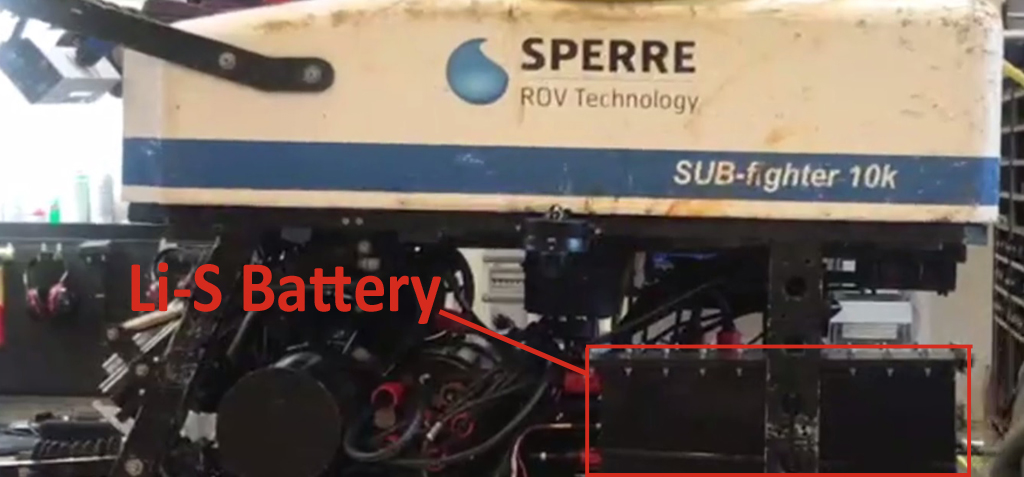
The two year program to develop a pressure tolerant Lithium Sulfur (Li-S) battery pack capable of powering autonomous vehicles to ocean depths of over 6,000 metres has successfully accomplished the objectives set down in 2015.
A consortium headed by Steatite and comprising OXIS Energy, MSubs and the National Oceanography Centre (NOC) completed the ambitious project with trials using the newly developed battery pack integrated into a deep dive autonomous vehicle (pictured).
The cells and Steatite’s brand new multi chemistry battery management system (BMS) can withstand the extreme pressure of 664 bars (equivalent to a water depth of 6,640 metres) and a temperature of 4°C without being compromised on integrity.
One of the objectives of the project was to use the neutral buoyancy of the cells to reduce the requirement of adding buoyancy foam to the vehicle. This proved successful, resulting in potential cost, weight and volume savings.
Discussing the project, Paul Edwards, Divisional Director of Steatite Batteries, said: “The project provided a number of challenges which have all been overcome though the hard work and determination of the consortium members. With valuable domain expertise and test resource provided by our academic partners at the NOC, through to successful sea trials and product integration by MSubs, the group can be proud of the world class achievements and capabilities it has delivered.
The Steatite Battery Management System and battery pack design enables a broad range of applications, and we are now looking toward the next phase which will see our battery packs successfully deployed in long term marine autonomous applications. “
A final project update will be released soon. If you would like to receive this please register your email address at https://steatite.co.uk/masupdates

